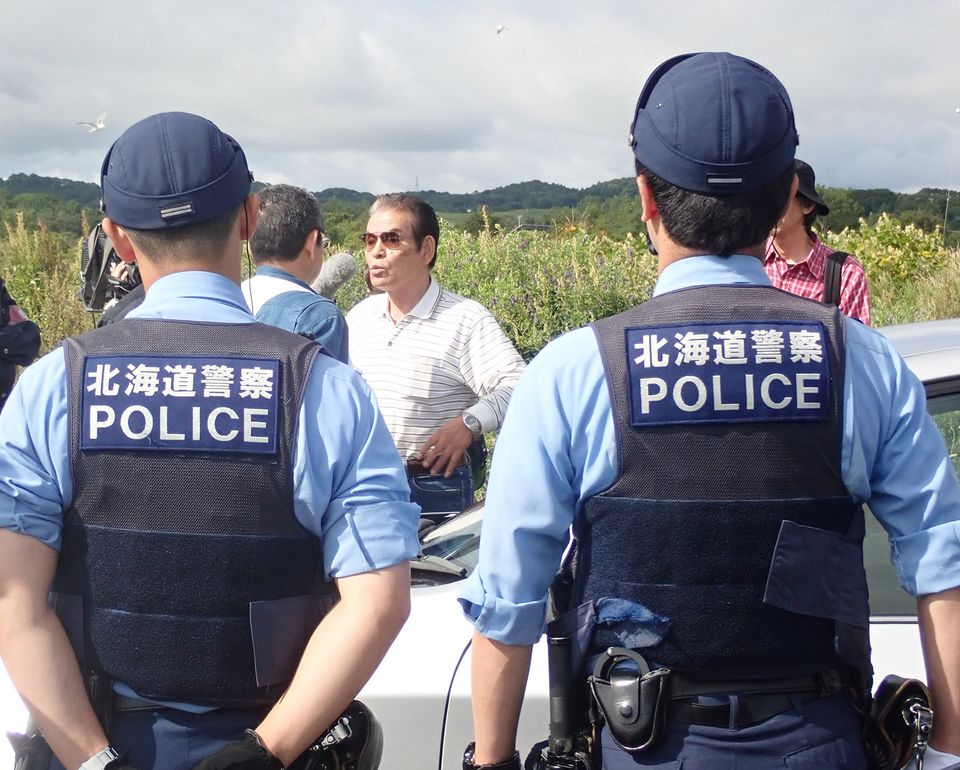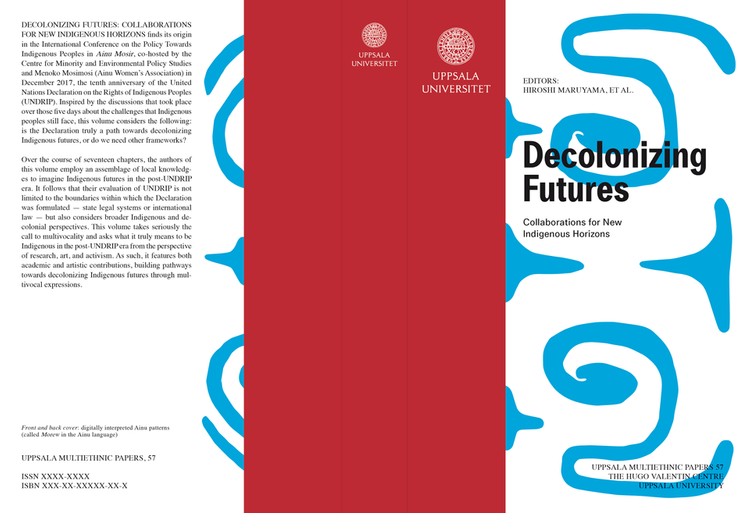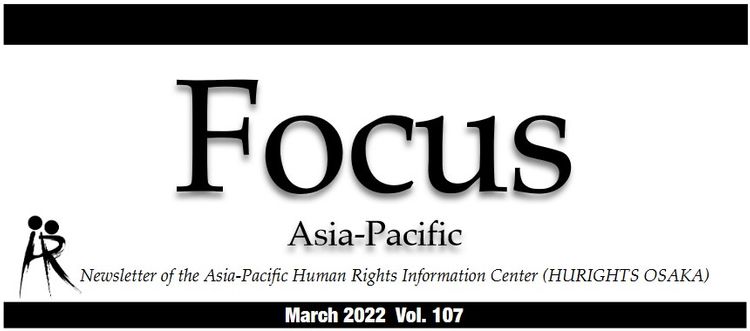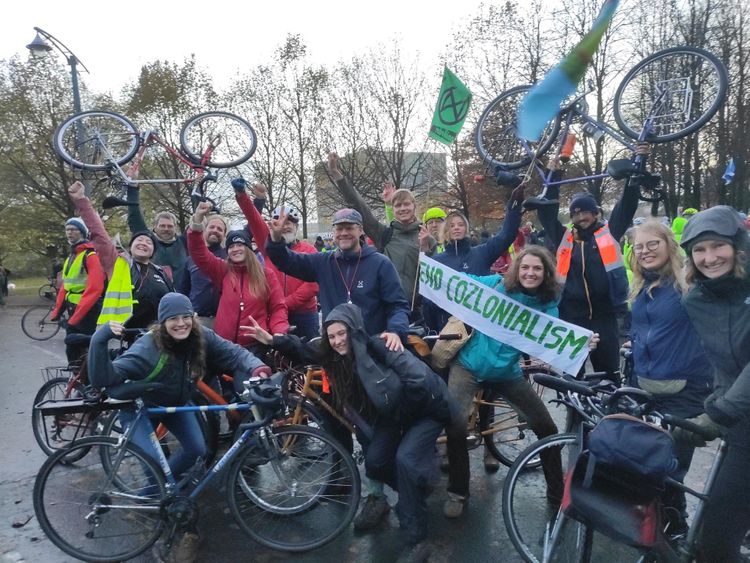A Conversation with Hatakeyama Ekasi

On 6 August, CEMiPoS Director Maruyama Hiroshi and Koizumi Masahiro, Director of the Sapporo Freedom School, visited revered Ainu leader Hatakeyama Satoshi in hospital in the northern part of Hokkaido. He has been working on rehabilitating from a cerebral infection for the past months. As revered Ainu Ekasi (elder) and chairman of the Monbetsu Ainu Association, Hatakeyama Ekasi (78) has been a strong advocate of the Ainu people for many decades. In September 2019, he was denounced by the local official authorities in Hokkaido for fishing salmon in the Monbetsu river in September 2019. His act of fishing salmon in the Monbetsu river was for the Ainu ritual called Kamuychepnomi – “welcoming the first salmon” – a ceremonial event that has been observed by the Ainu for centuries. According to him, his actions only correspond to preserving and maintaining the right to Ainu culture and cultural identity as part of the acknowledged rights belonging to Indigenous peoples.
Even in hospital, Hatakeyama Ekasi remained determined to fish salmon without permission from the authorities. He also declared that he would continue to fight against the authorities for Ainu rights to self-determination and the right to carry out subsistence activities. The following is a transcript of the conversation with Hatakeyama Ekasi.
Koizumi: Could you tell us how you feel about the state of salmon fishing and Ainu fishing rights? We would like to convey your thoughts in your own words through film.
Hatakeyama: On the one hand, the Japanese government has opened Upopoy, but on the other hand it neglects our fishing rights. It is inconsistent in terms of promoting Ainu culture. I can hardly accept the Ainu policy’s contradictions.
Koizumi: We agree. We at the Citizens’ Alliance of the Examination of Ainu Policy critically discussed Upopoy at a symposium in early August. You’ve had plans to fish salmon for your ritual (to welcome the first salmon back to the Monbetsu River) without permission from the Hokkaido Prefectural government for more than a decade, and last September, you finally did. But consequently, you were denounced by the Hokkaido Prefectural government for “poaching” salmon according to their regulations. Why did you decide to take such a course of action?
Hatakeyama: I am stubborn, so I will accomplish what I have to do by all means. The thought of giving up never crosses my mind. I do hope to fish salmon for our rituals by our decision, and without an application for permission.
Koizumi: I like to think that you fished salmon not only for yourself but also for future generations. What do you think about fishing rights in the future?
Hatakeyama: The Wajin (Japanese settlers) have unilaterally enacted legislation for governing us Ainu who inhabited Hokkaido before they came. I am reluctant to accept it. Once Ainu people made a living by freely hunting and fishing. Japanese settlers, who came to Hokkaido much later than we did, interrupted and disturbed us through their legislation. So I am reluctant to follow their legislation.
Koizumi: I would like to convey your criticism on the current Ainu policy to the members of the UN Human Rights Council. I would also like to share this interview to audiences at future gatherings if possible. Could you share a message for them?
Hatakeyama: The Japanese government has restricted us from embracing an important part of our culture. It is unacceptable that future generations will suffer from the same problems as I face today. I want our old days of fishing back.
Koizumi: What do you think about this year’s Kamuychepnomi in Monbetsu, given your condition?
Hatakeyama: As far as fishing salmon to humbly make an offering at Kamuychepnomi goes, I will manage to do so. I will not be able to fish ten salmon like before, but even five or seven are enough to celebrate Kamuychepnomi.
Koizumi: In order not to waste your effort fishing salmon last year, we would like to continue supporting the tradition of Kamuychepnomi. We hope that Monbetsu will become known as a historical site for Kamuychepnomi, and that the Hokkaido Prefectural Authority and the Japanese government will guarantee the Ainu people their cultural rights.
Maruyama: My friends and colleagues from Amareya Theatre in Poland were impressed by your struggle to regain the cultural rights last September when they witnessed your press conference in Sapporo. In November, they are planning to perform in Monbetsu to support you and the Ainu people. Would you accept their offer? (Hatakeyama: Thank you very much for your support). We will follow and pass down what you have done for the Ainu people to future generations. Not only people in Poland, but also Ainu in diaspora support you (Hatakeyama: Thank you very much for your support). I hope that you continue to recover your strength.
Koizumi: Due to the efforts of Kaizawa Ekasi (chairman of the National Trust Cikornay) and other Ekasi, the campaign to restore Ainu people’s right to perform Kamuychepnomi is collecting plenty of signatures. Many Ainu have cooperated in the campaign as well. Furthermore, in August, Maruyama and I started lobbying members of the Hokkaido Assembly to abolish regulations requiring the Ainu to apply for permission when fishing salmon for their rituals. We will also call on the Hokkaido Prefectural government to ensure Ainu people’s right to perform Kamuychepnomi. Could you send them a message?
Hatakeyama: I can’t move as freely as I could in the past. But even after having a cerebral infarction, I won’t change my mind. I would appreciate you working together with me and the Ainu people in our struggle to regain our rights.
On 5 September, Ainu people gathered in Monbetsu to perform the Kamuychepnomi ritual. It did not only serve as a ritual welcoming the return of salmon as they migrate upstream, but also as an act of resistance against the legacy of Japanese colonialism. Although Hatakeyama Ekasi was unable to attend, the ritual was carried out in his spirit of activism and resistance. A full report of Kamuychepnomi can be read here.
Image by the courtesy of Mr. Yosuke Kosaka




